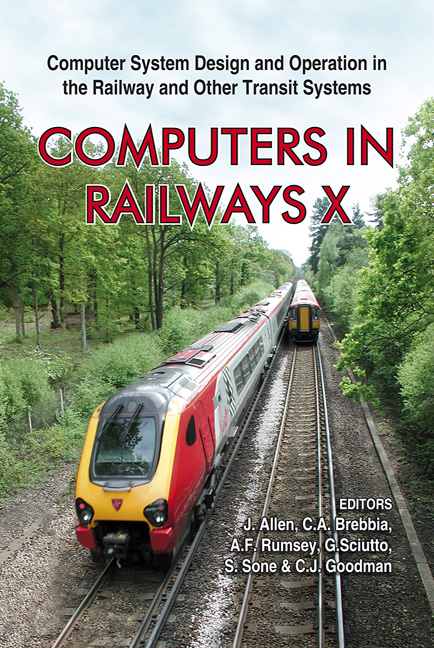State-of-the-art Of Railway Operations Research
Price
Free (open access)
Transaction
Volume
88
Pages
13
Published
2006
Size
619 kb
Paper DOI
10.2495/CR060561
Copyright
WIT Press
Author(s)
I. A. Hansen
Abstract
The paper discusses the current state of research concerning the modelling of stochastic train operations in order to optimise the use of capacity by means of analytical methods and micro-simulation. Timetable quality is governed by precise running and realistic recovery times, as well as optimal headway and buffer times. Analytic (queueing) models and micro-simulation are used for estimation of waiting times, while combinatorial models and stability analysis by means of max-plus algebra technique are suitable for network timetable optimisation. Operations quality can be modeled by the estimation of (admitted) queue length and micro-simulation. A recently developed probabilistic model for the estimation of delay propagation in stations and junctions based on the stochastic variation of track occupancy times depending on conditional probability distributions of hinder by headway constraints and route conflicts is presented, while stochastic timetable optimisation may help to determine a more efficient distribution of running time margins and to increase punctuality in large networks. Keywords: timetabling, waiting time, delays, rescheduling, level of service. 1 Introduction So far, railway timetables are based on deterministic running, dwell and headway times between stations. These times are mostly scaled in minutes and refer to a virtual stopping point at the stations. Small variations of the service times are compensated by standard running time and dwell time supplements, as well as margins between the train paths. The amount of time supplements and margins applied for scheduling, however, is mainly based on rules of thumb, sometimes checked by simulation, and only seldom derived from statistical analysis of real-world operations data.
Keywords
timetabling, waiting time, delays, rescheduling, level of service.





